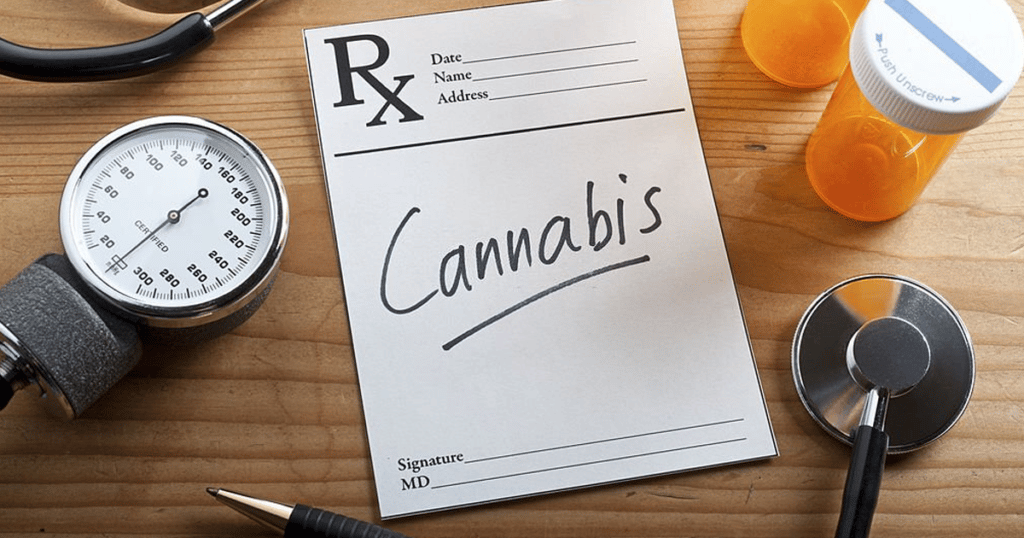Despite much positive momentum, Missourans may lose their opportunity to legalize marijuana this coming November. According to the most recent incomplete estimates from Secretary of State Jay Ashcroft’s office, which were acquired through a Sunshine Law request, the proposed Legal Missouri 2022 lacks the required number of signatures in four of the six Congressional districts to qualify on the ballot.
Supporters of a ranked-choice voting initiative named Better Elections were correct when they predicted in June that their proposal would not appear on the November ballot; those same tabulations now support their claim.
Missouri’s Medical Landscape
Thanks to a citizen initiative petition – which is a Missouri procedure that enables regular people to modify the state constitution with a ballot item if they receive enough public support – medical marijuana was made legal in Missouri during the November 2018 election. With more than 65 percent of the populace voting in favor, Amendment 2 was inserted into the Missouri Constitution as Article XIV Section 1, “Right to Access Medical Marijuana.”
The first medical marijuana sale took place on October 16, 2020, 23 months after the drug’s initial legalization. Since then, medical marijuana worth millions of dollars has been sold lawfully in Missouri. The state has collected $13,744,455 in taxes on $350 million in taxable sales since November 2020. Only state tax is included in this sum. Medical marijuana is subject to a 4% tax in Missouri. The entire sales tax impact is expected to be $15 million, according to the Missouri Department of Revenue.
By January of this year, the state had collected nearly $1 million in sales tax every month on more than $20 million in taxable transactions.

Corruption In The Cannabis Space?
However, the medical marijuana market hasn’t experienced totally smooth sailing in Missouri.
A Missouri family that was turned down for a permit to cultivate medical marijuana claimed in court that outside organizations and people had improper access to high-ranking state authorities. Plaintiffs used emails that showed the state regulators holding several meetings with industry insiders who afterward received licenses to support their claims. The Callicoats of Sarcoxie, MO, sued the state earlier this year when their application for a license to operate a cultivation facility was rejected. The family is asking the judge to strike down a “geographic bonus” that benefited firms in ZIP codes with high unemployment rates and declare the state’s cap on the number of medicinal marijuana licenses unlawful.
Joe Bednar, a lawyer for the Callicoats, alleged that the state was planning to restrict the number of licenses at the suggestion of industry insiders, a course that was permissible but not required. The director of the medicinal marijuana program, Lyndall Fraker, said in court on Friday morning that interacting with the public was one of his most crucial responsibilities.
Bednar added that Fraker started speaking with several business leaders even before he began his position formally in the first week of January 2019.
Bednar claimed Fraker started scheduling meetings with Steve Tilley, a lobbyist who has been a close friend and advisor to Missouri Governor Mike Parson for many years, in December 2018. Bednar also brought up an email sent by Jack Mitchell to Williams on December 20, 2018, which would later result in his business obtaining seven marijuana licenses.
An application system that is based on merit and in which the department will assign applications a numerical score is described in the email. Additionally, it implies that the number of licenses will initially be capped at 60 cultivation facilities, 86 production facilities, and 192 dispensaries, 24 of which will be geographically distributed among the eight Congressional districts.
Amy Moore, the deputy director of the medical program, described the email in testimony. “What they had done is created draft regulations that they thought would be appropriate […] and they submitted them to Dr. Williams who passed it on to those of us in rulemaking for our consideration.”
The department’s decision to grant 60 licenses, according to Bednar, “was based on nothing other than the recommendation of MoCann, or these folks in this email.”
Bednar is quite plainly accusing Missouri lawmakers of corruption, insinuating that the frameworks for cannabis businesses to operate were set up by large corporations.
DHSS might have used a procedure that would have been more transparent, according to Bednar, who also claimed that the department delayed until the very last minute to file its new guidelines.
A section of a rule that deals with scoring applications were provided, along with questions on how answers would be evaluated, in an email sent in March 2019 from the general counsel of DHSS to an attorney in the governor’s office.
But the rule itself never included a detailed list of those particular queries. Instead, they were “integrated by reference,” a strategy that Moore claimed was equally permissible.
While the circuit court judge dismissed the case, the Callicoats and Bednar are not the only parties unhappy with Missouri’s vertically-integrated medical cannabis licensing program. The state has made it incredibly difficult for small businesses, independent farmers, and patients alike to access the industry. Instead, the state insists on making the process difficult and convoluted.

The Move To Recreational Cannabis in Missouri
Missourans recently decided to attempt to fully legalize recreational cannabis. For months, people canvassed each of the state’s congressional districts, gathering signatures and working hard to obtain the necessary number of signees. In order to do so, Missourans partnered with Fieldworks and Better Elections.
According to Sean Nicholson, campaign manager for Better Elections, the COVID-19 pandemic, which made it challenging to collect signatures, and a sizable amount of unregistered signatures were the major challenges for the initiative campaigns.
Fieldworks, the Washington, D.C. company that received more than $8 million in total from the two campaigns to gather signatures, experienced “catastrophic failure,” according to Nicholson. “We submitted signatures under the impression that we had everything.”
Inquiries for comments from Fieldworks representatives went unanswered. A 2020 Medicaid expansion plan and a 2018 right-to-work referendum were two successful signature-gathering campaigns coordinated by the business in Missouri.
When the petitions were turned in in May, each campaign asserted that they had more signatures than needed to qualify for the ballot. Better Elections claimed to have more than 300,000 signatures, and Legal Missouri claimed to have more than 385,000.
Better Elections published a statement saying the initiative would be repeated in the future after discovering in June that it was unlikely to succeed.
By enabling current license holders to cater to both medical and non-medical customers, the Legal Missouri initiative would extend the present medical marijuana enterprises program. Each congressional district would receive six dispensaries and twelve wholesale facilities, totaling 144 extra licenses for what will be referred to as “microbusiness facilities.” Additionally, marijuana-related criminal charges would need to be erased from records. Unfortunately, it does not seem like this law will come to pass thanks to the failure of Fieldworks.
When coupled with the medical marijuana licensing corruption accusations, the Missouri government’s bias against the expansion of the state’s cannabis industry comes to light. The medical marijuana program, while profitable for the state, has largely excluded Missourans and is instead focused on providing business opportunities to existing cannabis corporations. The proposed licensing processes within the Legal Missouri initiative would threaten the hold that major corporations have on the Missouri market, and would also threaten the politicians in their pocket.
The mistakes made by Fieldworks only serve to further support the status quo and do next to nothing for Missouri cannabis patients. Hopefully, they finish the count at the predicted number of signatures and the Legal Missouri initiative goes to the voters in November.
Enjoyed that first hit? Come chill with us every week at the Friday Sesh for a freshly packed bowl of the week’s best cannabis news!

















